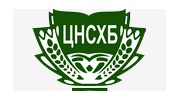Knorre (Konstantinova) E. Yu. Prishvin’s philosophy of land in the context of ecotheology // The Russian Peasant Studies. 2024. V.9. №3. P. 73-91.
DOI: 10.22394/2500-1809-2024-9-3-73-91
Annotation
The article reconstructs the idea of land management in the ecophilosophy of Mikhail Prishvin. For the first time, the author shows parallels between Prishvin’s philosophy of land and H. Thoreau’s transcendentalism, T. Goricheva’s ecoliturgy and eschatological issues in J. Haught’s ecotheology. Prishvin’s motif of land hidden for man’s sins correlates with the myth of the Invisible City of Kitezh, which went under water. Such ideas were borrowed from the teaching of Aurelius Augustine about the City of God and the earthly city, Plato’s myth of the cave, and the return of fallen Sophia to the world in God (Blissful Being) in the philosophy of V. Solovyov. Prishvin uses the myth of the lost paradise land to criticize the rational-positivist worldview of the mechanistic civilization as based on the idea of earth and nature as inanimate objects subordinated to the will of man. Prishvin contrasts humanity that divides land into conflicting parts during wars and revolutions or reshapes it through land reclamation projects of the 1920s and 1930s with the economic behavior of Adam, the Russian Parsifal, Prishvin’s collective hero, who, in the light of “family attention” of “distinguishing love”, reveals the name of the creature “resurrecting from among” “the personal Russia” as the land that once went under water. The author concludes that the idea of economic behavior on land as distinguishing attention and the perception of land as a community of people, “community of creation” that restores the lost whole of the multifaced cosmos, the Whole Man, was proposed by Prishvin as an alternative to the objective thinking that does not distinguish “faces” and perceives land utilitarianly, as its possession. Thus, Prishvin’s Christian personalism is close to the tradition of spiritual resistance to a depersonalizing civilization in the Russian and foreign ecophilosophy of the 19th– 20th centuries.
Keywords
M. Prishvin, H. Thoreau, T. Goricheva, J. Haught, romanticism, transcendentalism, Christian ecology, ecotheology, ecoliturgy, Parsifal, Whole-Man, cosmic Eucharist, Christian personalism.
About the author
Elena Yu. Knorre (Konstantinova), PhD (Philology), Senior Researcher, А. M. Gorky Institute of World Literature of the Russian Academy of Sciences; Associate Professor, Department of Philosophy and Religious Studies, Orthodox Saint Tikhon University for the Humanities. Povarskaya St., 25а, Moscow, 121069, Russia.
E-mail: This email address is being protected from spambots. You need JavaScript enabled to view it.
























